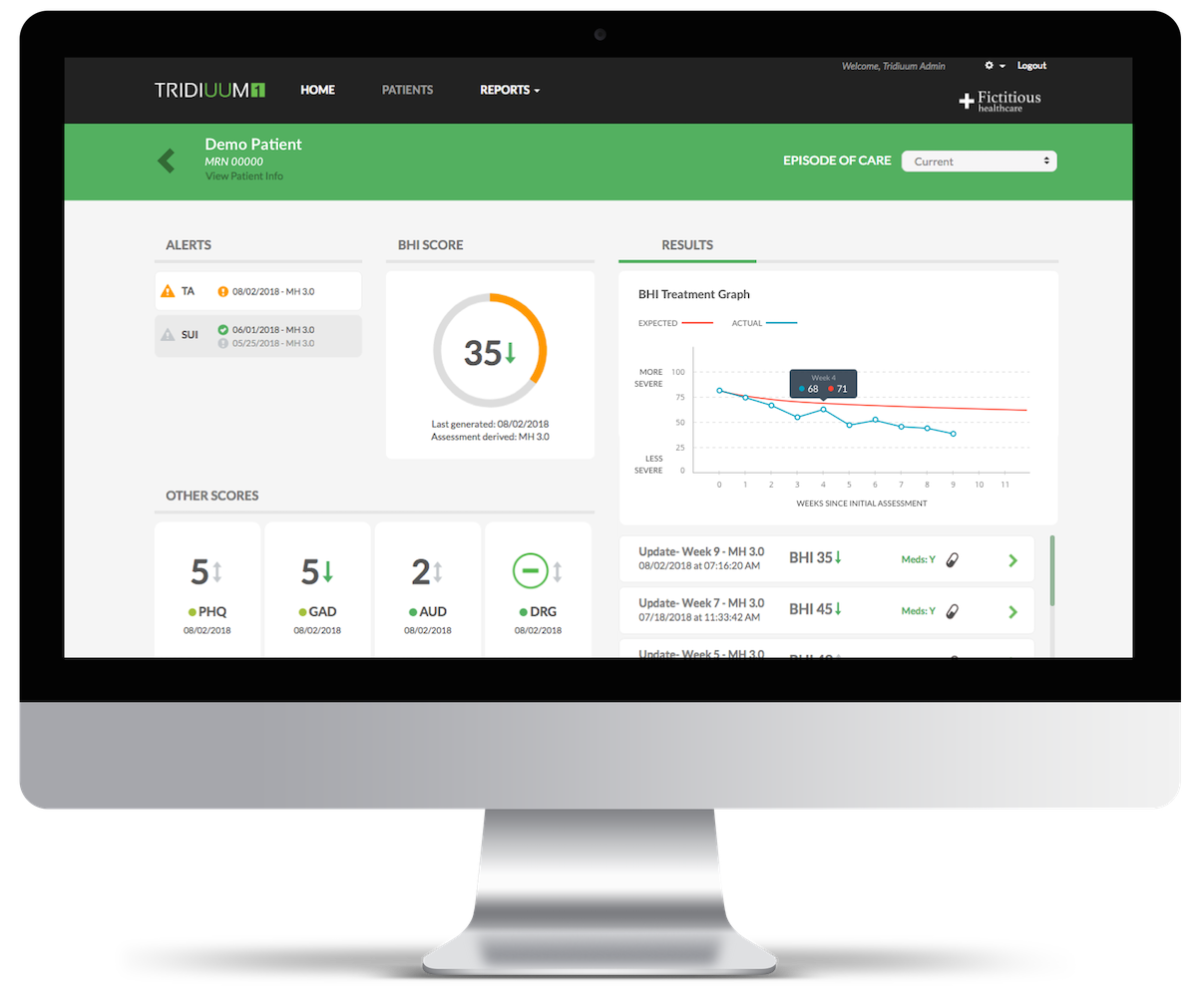Center City-based behavioral health company Tridiuum kicked off 2020 by announcing Tuesday it has created a partnership with Washington-based LifeStance Health to improvements patient outcomes and further commit to making suicide “a never event.”
The company is known for its Tridiuum ONE platform, a cloud-based SaaS platform that clinical facilities and patients can use to identify behavioral conditions faster, accelerate access to care, engage patients for feedback and deliver treatment progress tracking. The platform integrates with most electronic health records and health IT software, reported the company, which raised a $9.5 million Series B back in December 2018.
The platform is used within the 24 hours before an appointment or visit with a mental health care professional, as Tridiuum CEO Mark Redlus — a serial tech CEO with a background in health tech and clean energy — told Technical.ly. A patient will fill out a two- to four-minute survey on a tablet before entering a session, and its software quickly identifies the scope of what a patient is presenting with at the time, including suicidal ideation, so the healthcare professional can create a treatment plan.
For 20 years, Tridiuum was know as Polaris Health Directions, with a team of about 20 working on National Institutes of Health-funded mental health research. In 2017, the company changed course, Redlus said, and the product supported by years of research — Tridiuum ONE — was born. The company now has about 50 employees, between sales, customer experience, engineers and researchers. Half report to the company’s HQ at 16th and Arch streets, while others are remote.
The digital health platform has since grown to be used at health clinics across the country, and supports an average of 8,000 patients a day with about half a million unique patient users in 2019, including about 160,000 patients overall in December alone, according to Redlus. The company plans to continue to scale up.
And its deal with LifeStance Health ensures that the Bellevue, Washington-based behavioral health care company will use the Tridiuum ONE platform to administer patient behavioral health assessments digitally instead of manually, as it had been doing before — and for Tridiuum, it means adding 100,000 to 200,000 more users to its platform in 2020, Redlus estimated.
Financial details of the deal were not disclosed. LifeStance provides treatment services for children, adolescents and adults suffering from a variety of mental health issues in inpatient, partial hospitalization, intensive outpatient and outpatient facilities.
“Providing our 1,750 employed clinicians with real-time insights into treatment effectiveness means we are better positioned to achieve desired outcomes faster — including our ability to help achieve a nation of zero suicide,” said LifeStance CEO Michael K. Lester in a statement.
Both companies will work toward the goal of reducing suicide risk by using the platform, which in 2019, identified about 25,000 users who indicated on the platform that they were triggering suicidal ideation.
“Essentially we triage those patients into the right care by getting them the help they need, getting them into a better spot,” Redlus said.
Join the conversation!
Find news, events, jobs and people who share your interests on Technical.ly's open community Slack

Philly daily roundup: Women's health startup wins pitch; $204M for internet access; 'GamingWalls' for sports venues

Philly daily roundup: East Market coworking; Temple's $2.5M engineering donation; WITS spring summit

Philly daily roundup: Jason Bannon leaves Ben Franklin; $26M for narcolepsy treatment; Philly Tech Calendar turns one


